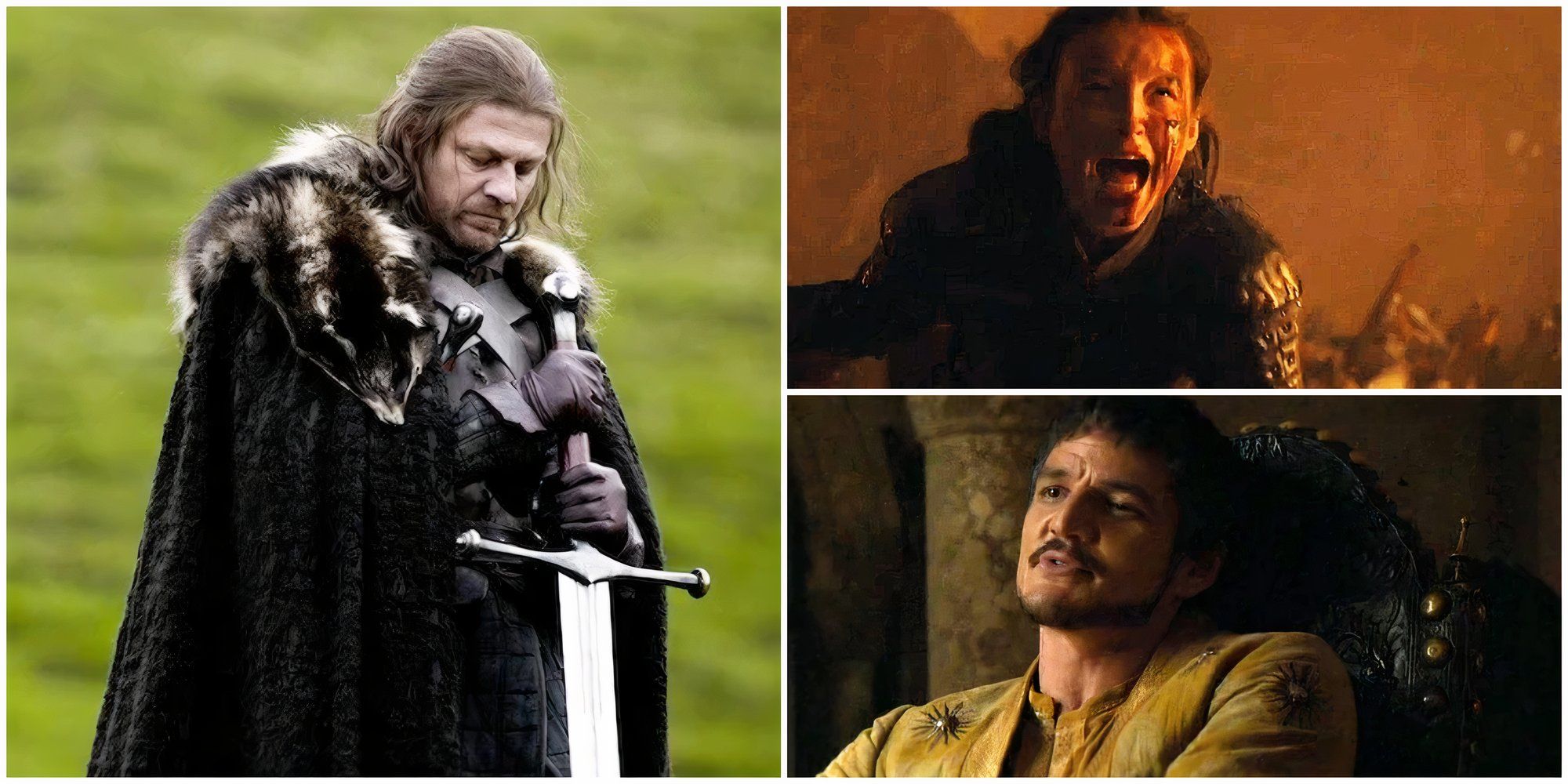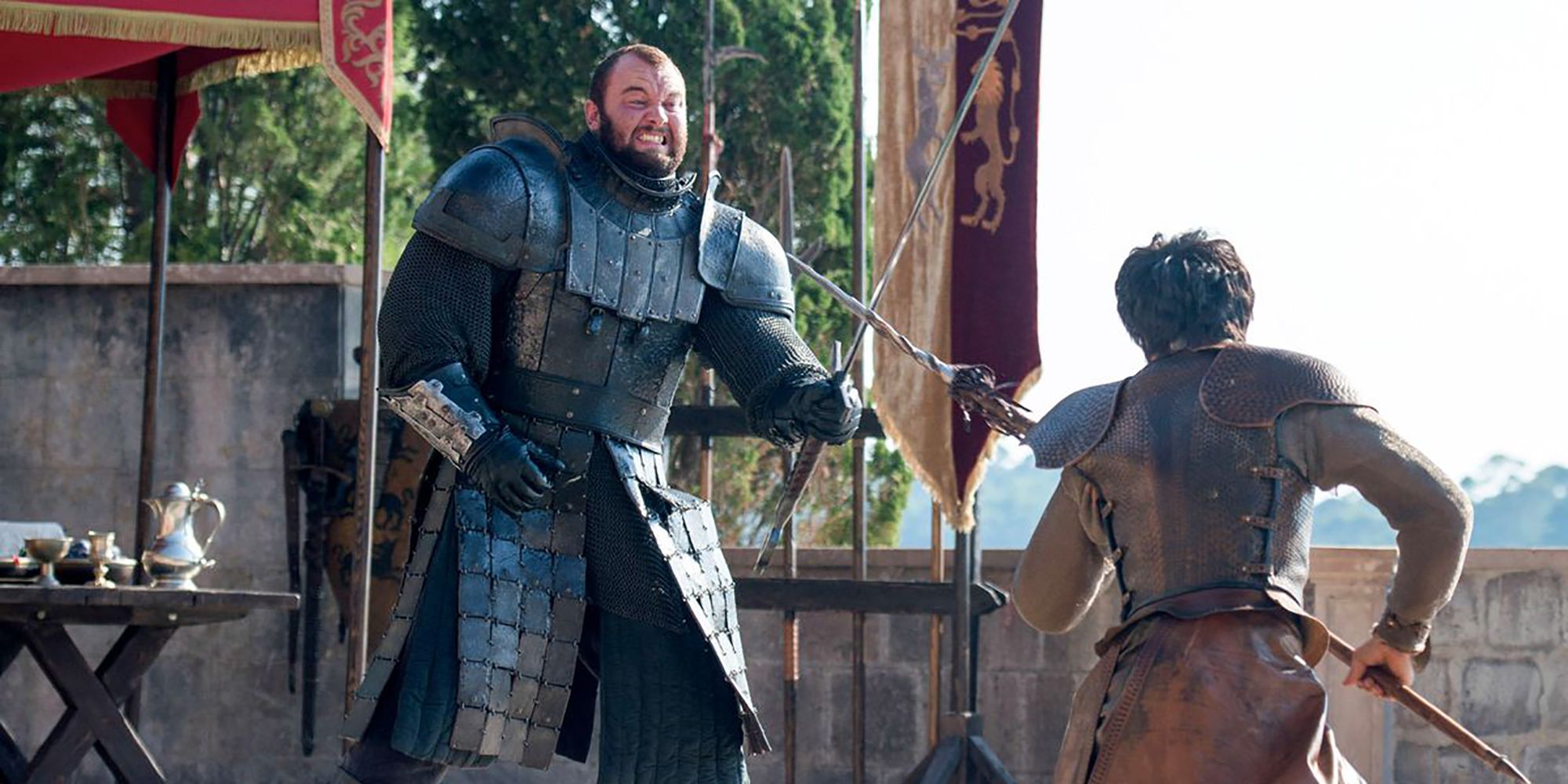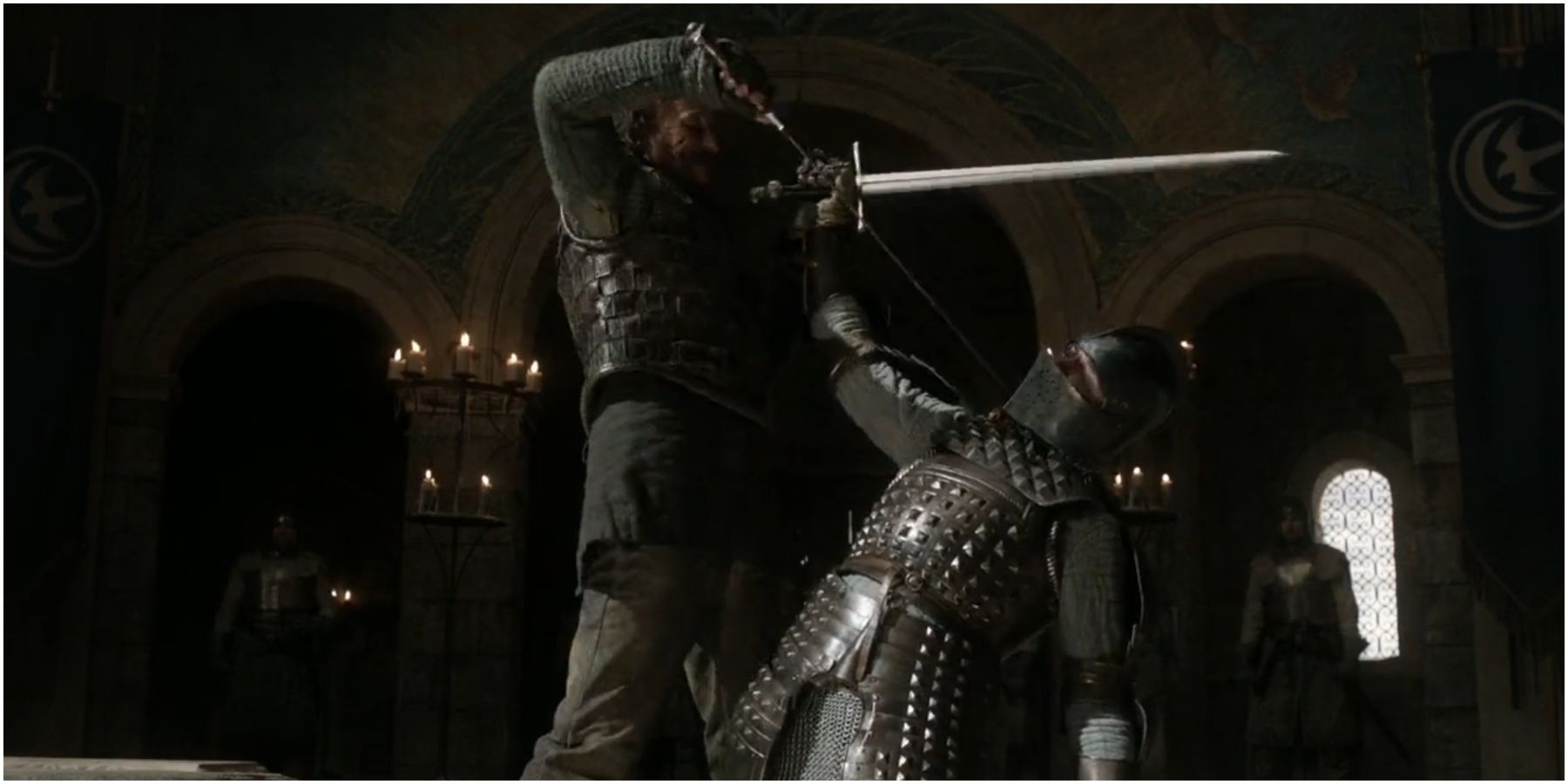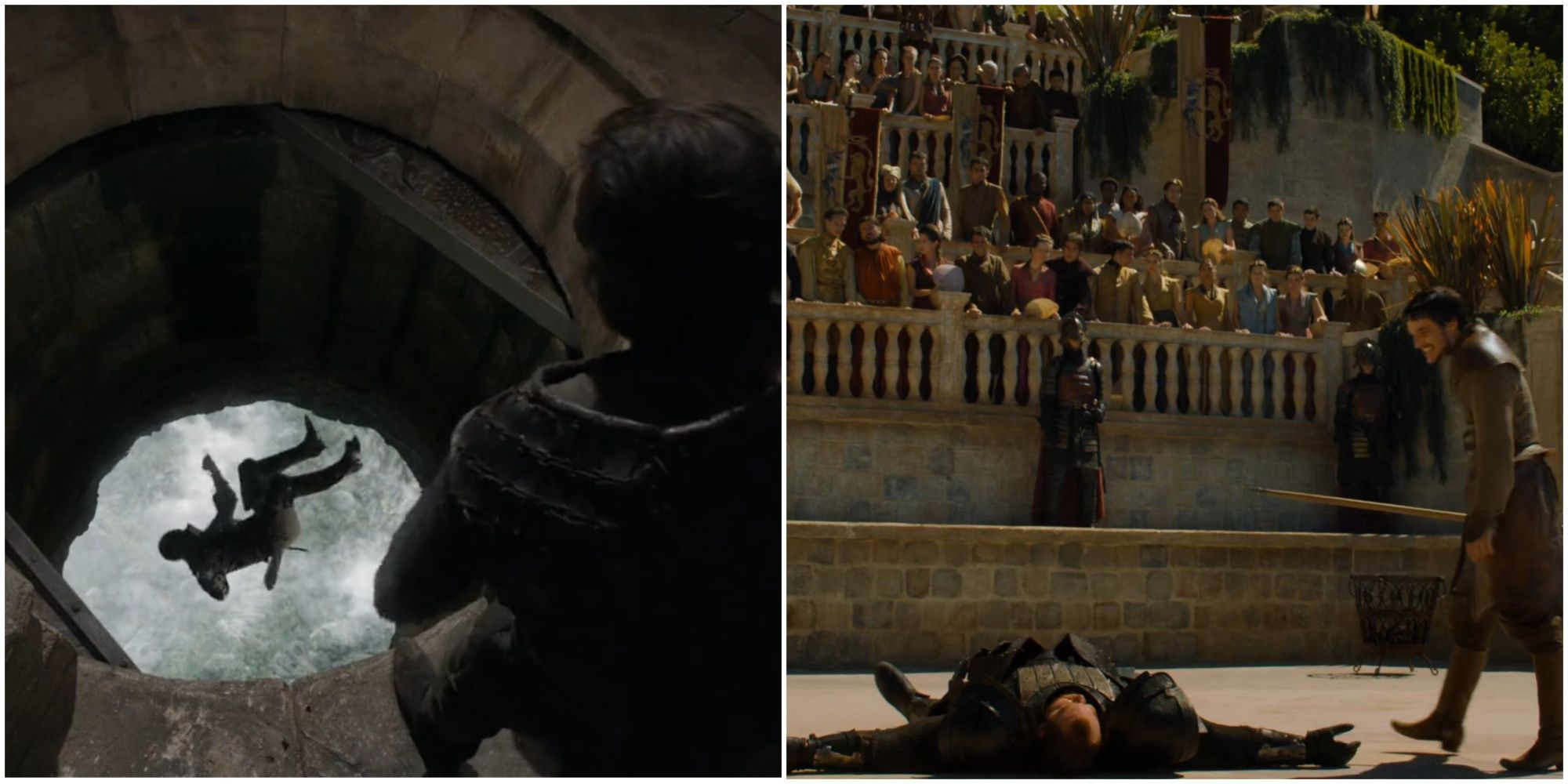Game of Thrones is set in the fictional world of Westeros that draws inspiration from the Middle Ages. Features such as an absolute monarchy, a feudal system, invasions, collapse of authority, and instability are seen on the show. In that light, the maintenance and administration of justice on Game of Thrones is often haphazard.
Trial by Combat and its variation, Trial of Seven, often pop up at interesting points in lore. A key pillar of the justice system in Westeros is that the accused have the right to demand Trial by Combat to decide whether they are guilty of a crime. The system isn't perfect by any means. It is arbitrary and unfair, but fascinating nonetheless.
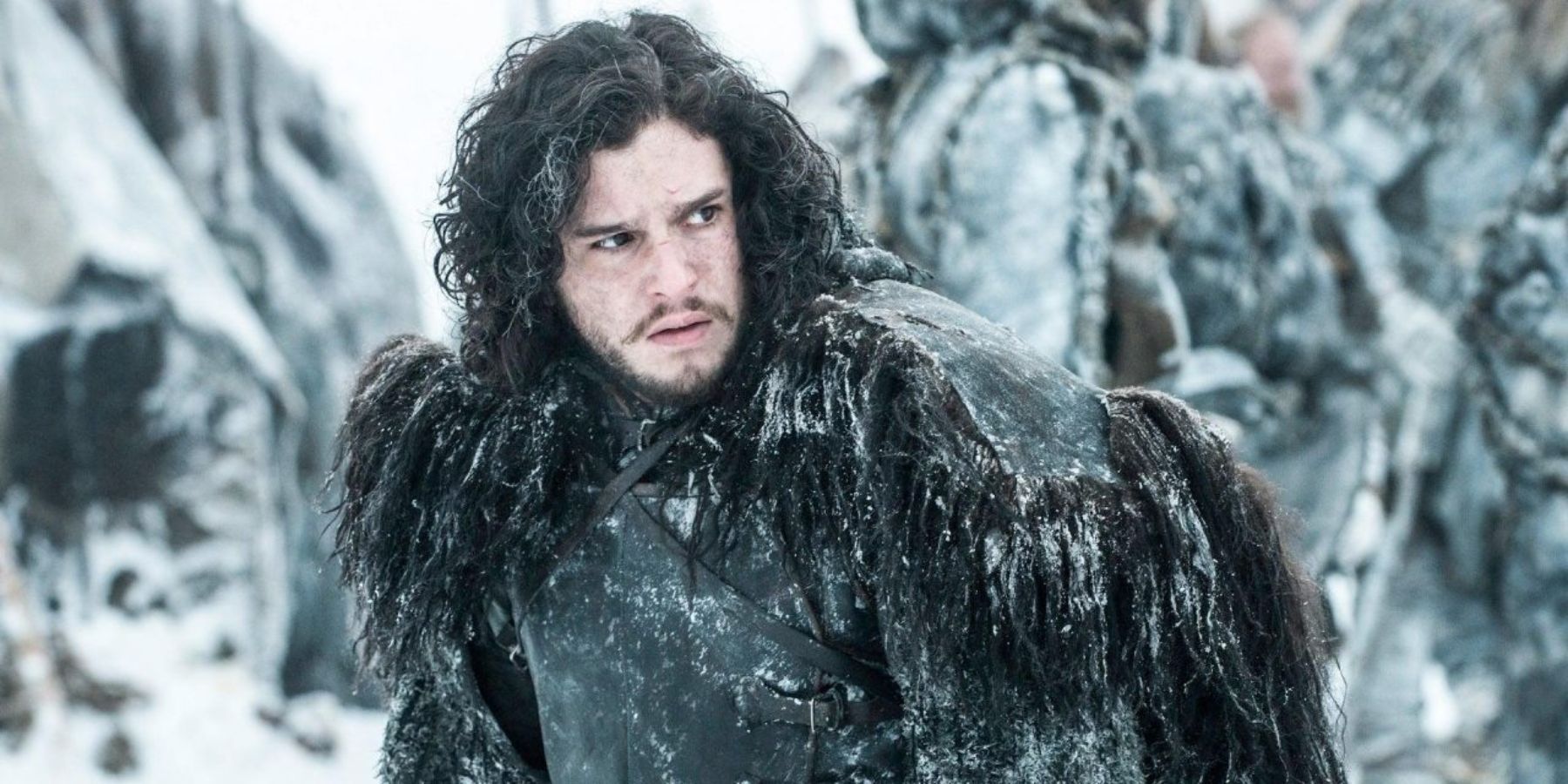
Game Of Thrones: The Life Of Jon Snow, Explained
Jon Snow is a central character in Game of Thrones, and he played a leading role in the war against the Dead to save the living.
What Is Trial By Combat?
HBO's Game of Thrones is home to three thrilling Trials by Combat. In season 1, Tyrion Lannister demands it in the Vale, and in season 2, Beric Dondarrion sentences Sandor Clegane, aka the Hound, to Trial by Combat at the Brotherhood Without Banners' hideout. Murder charges are levied against both Tyrion and the Hound. While the former demands justice through combat, Beric thinks it's more honorable to determine Sandor's innocence or guilt through a duel. Both these instances, along with the more famous The Mountain vs. the Viper, prove that Trial by Combat is a widely accepted method of justice dispensation in Westeros.
As seen in Game of Thrones, Trial by Combat is a judicially sanctioned duel, in which the champions for the disputing parties, or simply put, the accuser and the accused duel each other. It is alternatively known as Trial by Battle and typically demanded by the highborn at any point in their trial if they are dissatisfied with the proceedings. In Game of Thrones season 1, Lysa Arryn rightfully remarks that Tyrion has the right to Trial by Combat and in season 4, the accused - Tyrion says he will let the gods decide his fate through a Trial by Combat. In both these cases, the lords authorized to give verdicts no longer have the right to pass judgments but the accuser and the accused leave it to the gods to adjudicate. Other than highborn lads in the realm, knights, and highborn women also have the right to demand a Trial by Combat. Tyrion has a champion fight in his stead twice, whereas Beric and Sandor battle it out. Other instances where champions/ volunteers are required are in the cases of highborn women, or people who cannot fight for themselves.
Trial by Combat will conclude when the accuser yields or withdraws the accusations or when one of the two combatants dies. If the accused or the champion fighting on their behalf dies, they are pronounced guilty. However, if the accuser dies, the accused is absolved and walks free. If the accused is a royal, their champion will be a knight of the Kingsguard, but if they are from the nobility, they can ask someone to volunteer for them or select among warriors who aren't members of the Order of the Kingsguard.
Tyrion Lannister Demands Trial By Combat In Game Of Thrones
Tyrion Lannister had little faith in the justice system of Westeros, and he demanded Trial by Combat twice in Game of Thrones. The first time falls in Game of Thrones season 1, episode 6 "A Golden Crown," soon after Catelyn Stark takes him to Lysa at the Eyrie in the Vale. When imprisoned in the sky cells, Tyrion asks to be brought before Lysa's court to confess his crimes. He goes on a rant about his silly mischief-making:
When I was ten, I stuffed my uncle's boots with goat shit. When confronted with my crime, I blamed a squire. Poor boy was flogged, and I escaped justice... I once brought a jackass and a honeycomb into a brothel...
Lysa Arryn silences him and Catelyn reminds him that he is accused of hiring a man to kill her son, Bran, in his bed and of conspiring to murder the Hand of the King, Lord Jon Arryn. Tyrion denies the charges and demands a Trial by Combat instead. Bronn stands up for him, duels Ser Vardis, and throws him out the Moon Door. Tyrion is freed and the duo walks out of the Eyrie.
For the second time (Game of Thrones season 4, episode 6 "The Laws of Gods and Men,") Tyrion stands trial for regicide. He shows zero faith in the method of law to settle the accusation levied by Queen Regent, Cersei and knows she is hell-bent on implicating him. Tywin, Prince Oberyn Martell, and Lord Mace Tyrell sit as judges in King Tommen's stead. The farce trial ends with Tyrion demanding to prove his innocence through a Trial by Combat:
I will not give my life for Joffrey's murder and I know I'll get no justice here, so I will let the Gods decide my fate. I demand a Trial by Combat.
Cersei chooses Tywin Lannister's mad dog - the Mountain as the Crown's champion, while Jaime and Bronn refuse to fight for Tyrion. Eventually, Oberyn volunteers but dies in a ruthless combat known in the fandom as the Mountain vs. the Viper (Game of Thrones season 5, episode 8 "The Mountain and the Viper").
Game of Thrones' storytelling judiciously adapts the style and world-building of A Song of Ice and Fire lore for the screenplay. Tyrion's two exciting trials are perfect examples.

Game of Thrones
Game of Thrones, based on the Song of Ice and Fire book series by George R.R. Martin, tells the sprawling story of warring families in Westeros. This includes the Starks, the Lannisters, the Baratheons, and the Targaryens. Along with human conflicts, Westeros is also threatened by the re-emergence of dragons, and an undead enemy from beyond the Wall.
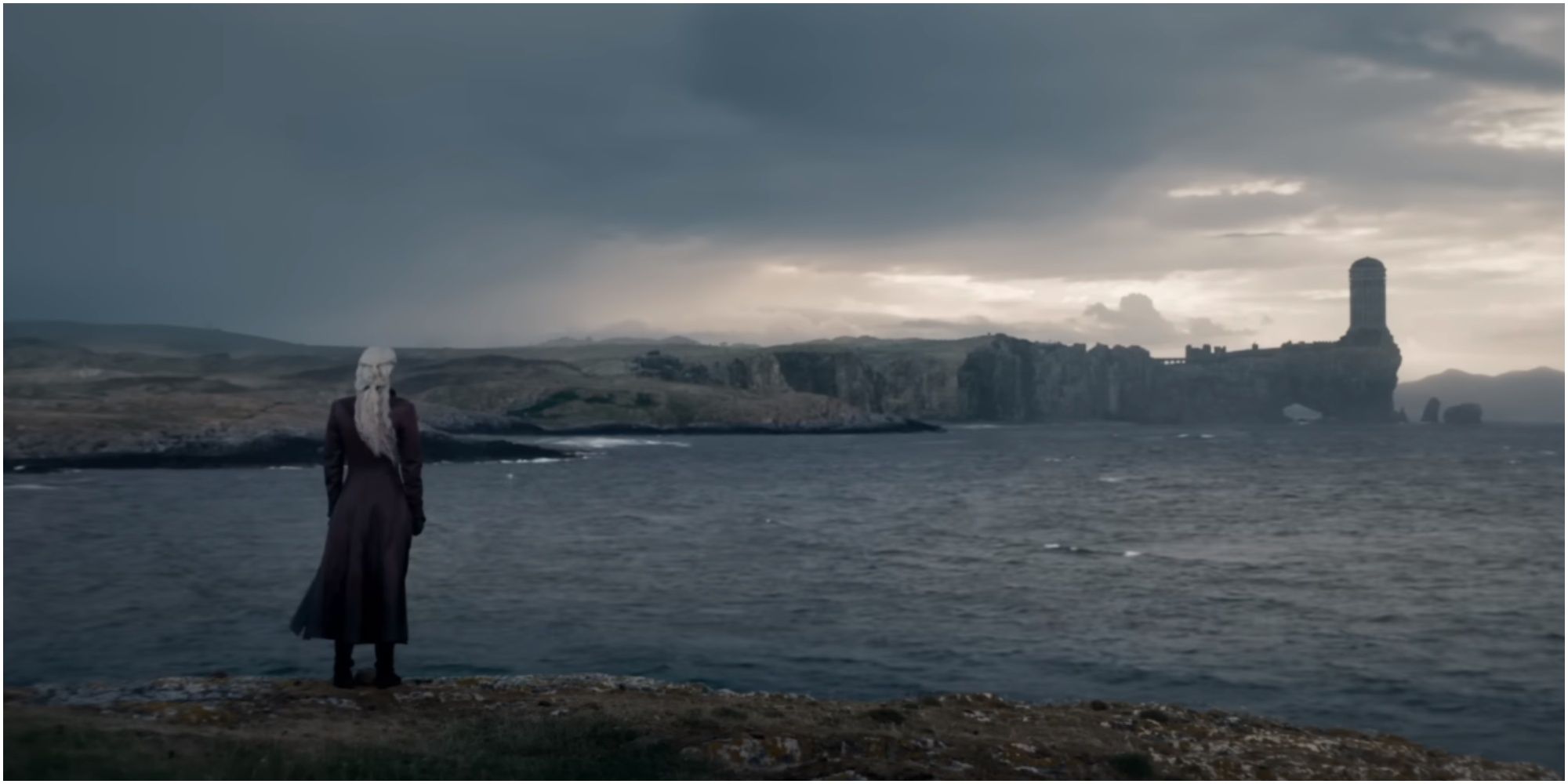
Game Of Thrones: Durran Godsgrief, Explained
The mythic Game of Thrones figure, Durran Godsgrief wed Elenei and subsequently went to war with the gods in lore.

